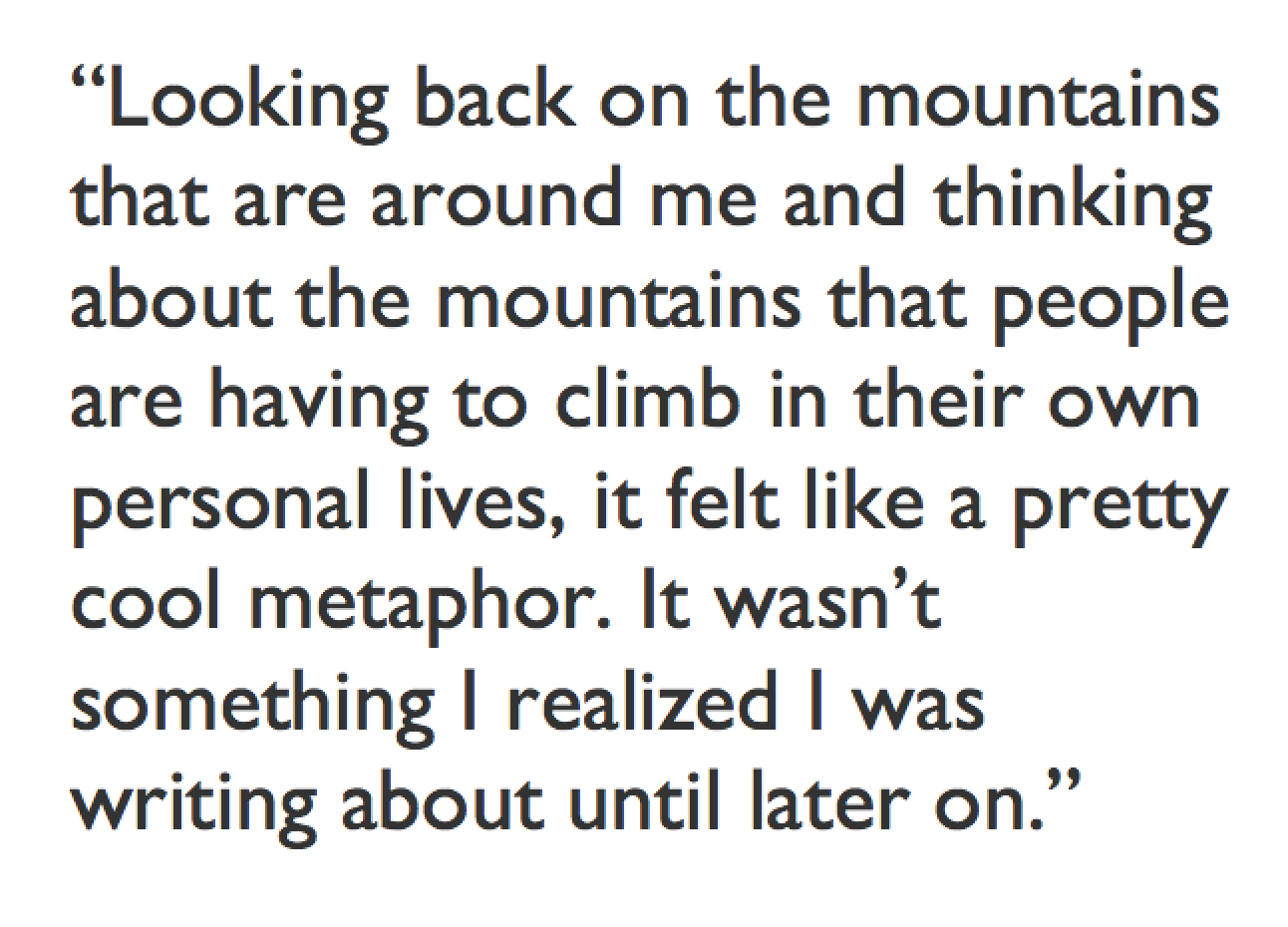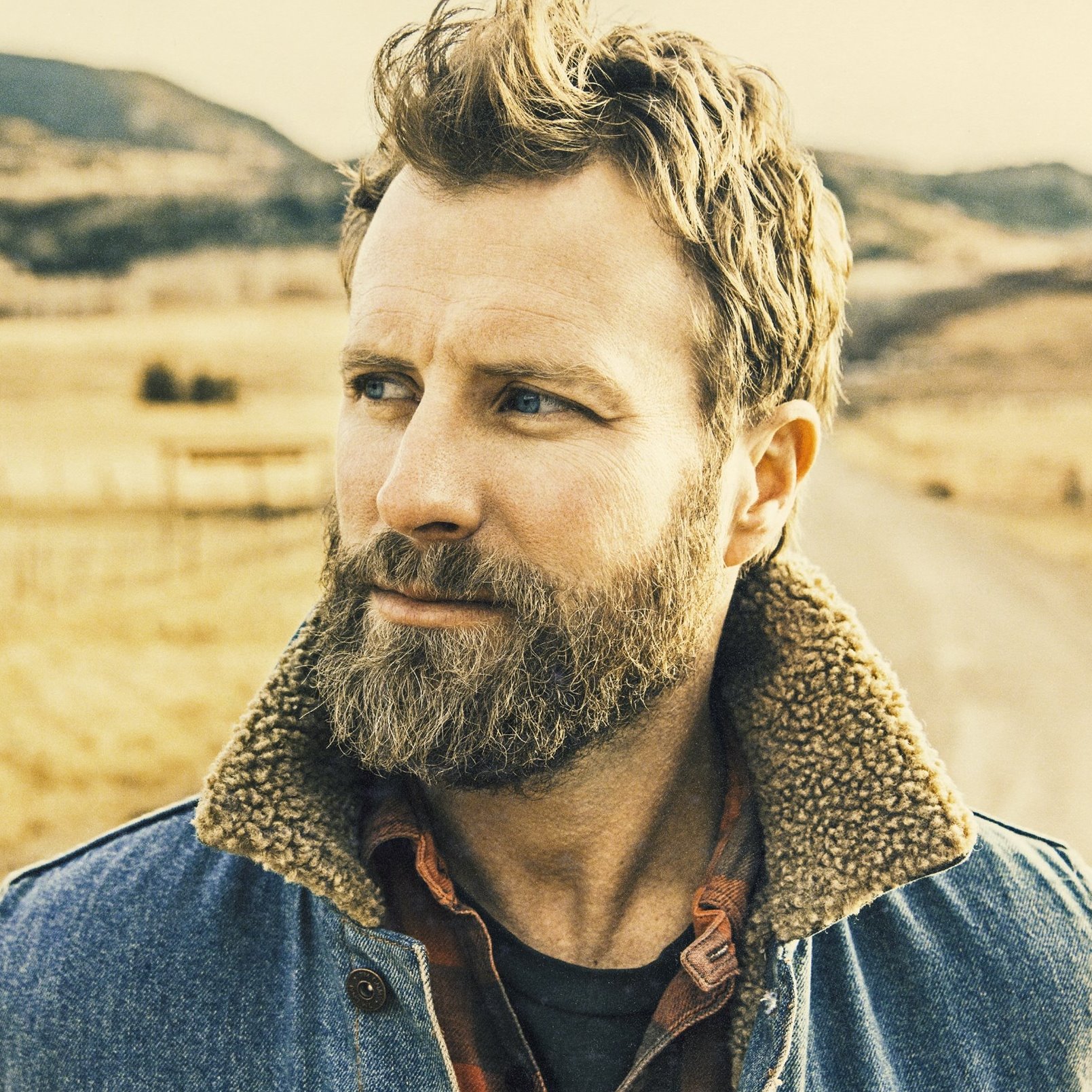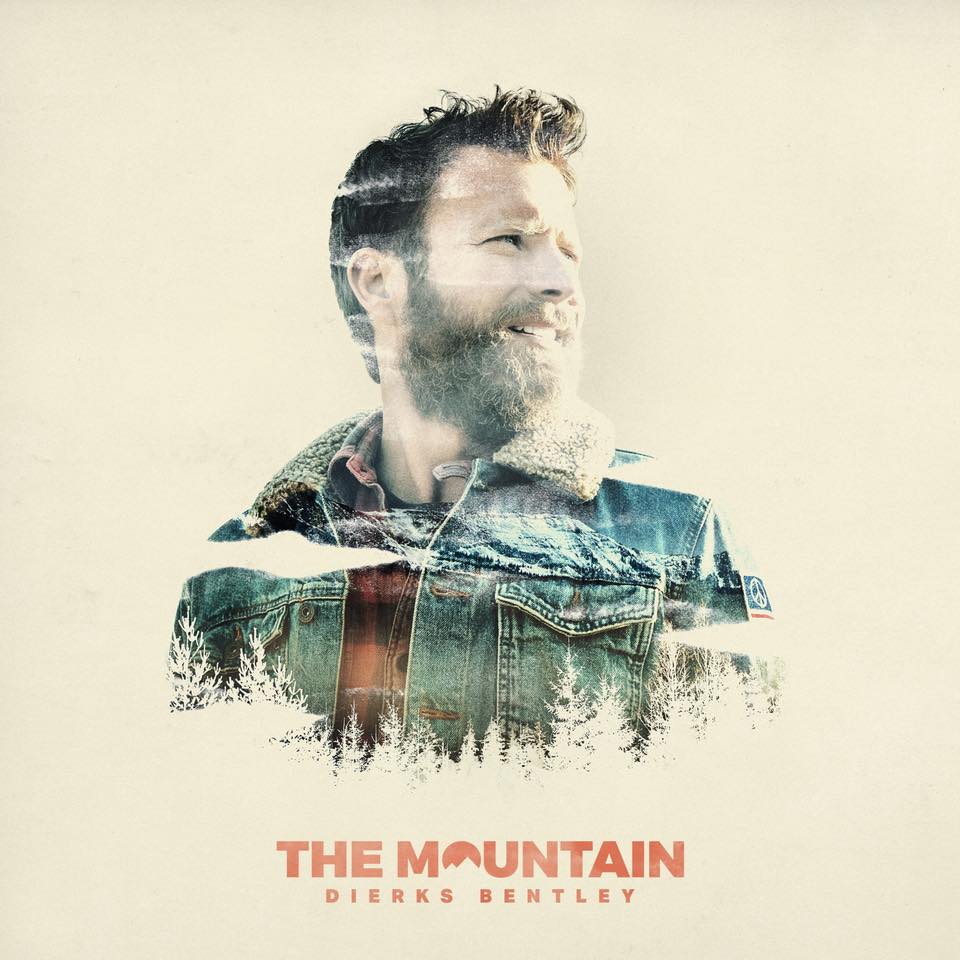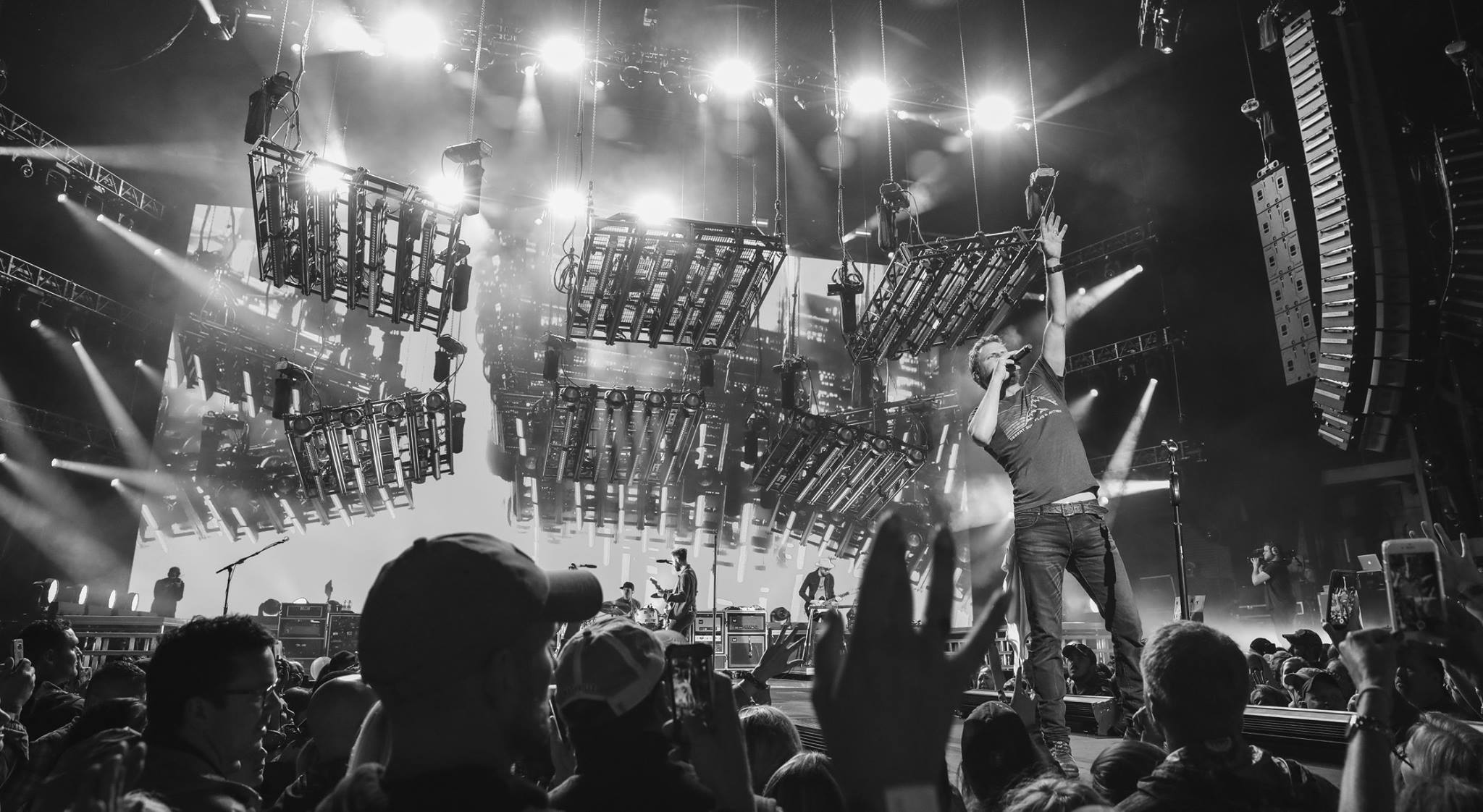
This is part one of a two-part series with MusicRow Magazine’s Sherod Robertson and multi-platinum selling singer/songwriter Dierks Bentley. Read part two here.
Over the last 15 years, Dierks Bentley has built a reputation as an authentic artist who often takes fearless stylistic detours with his music. He continues that journey with his highly anticipated ninth studio album, The Mountain, set for release by Capitol Records Nashville tomorrow, Friday, June 8.
Bentley co-wrote 10 of the 13 new tracks that are unified by themes of presence and positivity, and range in style from textured rock to acoustic folk. With his production team of Ross Copperman, Jon Randall Stewart and Arturo Buenahora, Jr., Bentley ventured to the Rocky Mountains to record the project at Studio in the Clouds last November.
MusicRow Publisher/Owner Sherod Robertson met up with Bentley at his writing room at Nashville’s Hutton Hotel recently to talk about The Mountain and how this project grew from a seed of inspiration to a meaningful musical mountainside.
 Why did you write and record The Mountain in Telluride, Colorado, instead of Nashville?
Why did you write and record The Mountain in Telluride, Colorado, instead of Nashville?
About this time last year I really had no idea what I wanted to do for the next album, or what I wanted to sing about. But I knew I wanted it to be something that I was inspired by. I played the Telluride Bluegrass Festival June 15th, 2017 and that was the spark. I knew I wanted to do something about the West—I’m from Arizona—I just didn’t know if that meant sonically or lyrically or conceptually.
I wanted to capture that vibe of the mountains and musicianship somehow in the songs. I knew I couldn’t translate that verbally so I brought six songwriters back out to Telluride in August and wrote a majority of the record there. We all lived in one house together right off Main St. It was like the Colorado fraternity house or something… Well Natalie Hemby was there, so it was a coed fraternity house, but it was so fun. And then I went back out with the musicians in November and recorded it.
How was that process different than working in Nashville?
Being outside of Nashville is really helpful towards being focused. At home, when 2:30 p.m. rolls around, I’m thinking about school pickup, or playing hockey with my son Knox in the driveway. So a lot of times, my co-writers have to conform to my schedule. During the winter I was trying to get in touch with the seasons where everything’s dying around me, so I try to kill parts of me I don’t like. So I work out super early from 5 until 6, and by 8 o’clock in the morning I’m ready to write, because my energy’s done by 1 p.m. Being out of town there isn’t that schedule and it is more relaxing.
And on Music Row, there’s more going on than just people creating songs. There’s a business happening. I feel like taking songwriters outside their normal routines and getting them somewhere else is good for them too. It’s good for your soul.
How would you describe the overall theme of this project?
I’d probably use the words “inspired, gratitude, and thankful.” The overall theme to me, is it just feels good. On the road the last two years, I spent a lot of time with my fans at meet and greets. I open my heart up so I can hear their stories, for example, about what “I Hold On” means to someone whose brother is dying of cancer. I hear a lot of heavy stories, but I also see a lot of perseverance. So I’m really inspired by my fans. And then after the Las Vegas shooting… it’s just a lot of heaviness. So I need to let go. I need to recharge.
Looking back on the mountains that are around me and thinking about the mountains that people are having to climb in their own personal lives, it felt like a pretty cool metaphor. It wasn’t something I realized I was writing about until later on.
The album itself led to a festival called Seven Peaks Music Festival in Colorado, and so many things have been manifested from that initial idea.
This album does not have a song in the same lane as “Somewhere on a Beach” and “Drunk on a Plane.” Was that intentional?
Some of those type songs just didn’t fit this vibe. And maybe some fans won’t understand that. But at the end of the day, it has to feel like an album to me.
This whole project is about digging deeper and finding stories that give meaning to your own struggles and help inspire you. And to me that takes you higher than a song like “5-1-5-0.” In my live show, “I Hold On,” brings the connection with fans so much deeper. There are different ways to reach your fans. There’s a direct route, which is an obvious hit, happy, fun song. Or there’s a back door way, which sometimes can have a little bit more of a lasting meaning.
The first track on The Mountain is “Burning Man” featuring Brothers Osborne. How did that collaboration come about?
Luke Dick and Bobby Pinson wrote the song, but it feels autobiographical. The first time I heard it was when my buddy Arturo Buenahora played it for me when we were making the Black album. And I was like, “God that’s a great song.” I tried recording it here in Nashville with a couple of folks and it just didn’t feel like I hooked it. But out in Colorado, I felt like we nailed the track.
I’m gearing up for a tour; it’s like going to summer camp with LANCO and Brothers Osborne. So the fact that we get to sing it every night is amazing.
“My Religion” is such a different song for you. Your vocals are out front and the piano is in the back. It is so powerful. What made you decide to record it?
There’s one song on every record that Mary Hilliard Harrington, my manager, encourages me to record. She loved “Somewhere on a Beach” and I wasn’t too sure about it. And she loves “My Religion.” Lyrically it’s a little different than some of the stuff on Music Row.
It’s my first song with just me and a piano on a track. It freaked me out. I know I love the song, but I don’t know how I feel about me singing the song. I relate to the lyrics and love the idea: that hook of loving you’s not my decision, it’s my religion. I mean, that is my religion—my wife, my family, my connection with the fans.
But I like having a song on the record that I’m not totally comfortable with yet. That means that it has the chance to grow on me.
How did you decide the track sequence?
What really surprised me overall about the record is how it just sequenced itself. I took a piece of paper and cut all the names and put them on the door with sticky tape so I could move them around, and the order manifested itself.
I knew “Burning Man” would be a great way to start off, and then “The Mountain” really sets the tone of the record. “Living” is the way I feel about life—taking chances, going for moments and really making the most of them. The gratitude of “Woman, Amen” and “You Can’t Bring Me Down,” those songs make you feel good, and are the meat of what the album it about. And that continued with the rest of the songs. All the songs came together to tell a story—about the journey of myself and this record.

About the Author
Sherod Robertson is President and Owner of MusicRow Enterprises. He oversees all operations and develops strategic initiatives for MusicRow magazine, RowFax, and MusicRow's CountryBreakout chart. Robertson previously served as Director of Finance of Arista Records after beginning his career as Vice President of Finance and CFO at Reunion Records.View Author Profile





